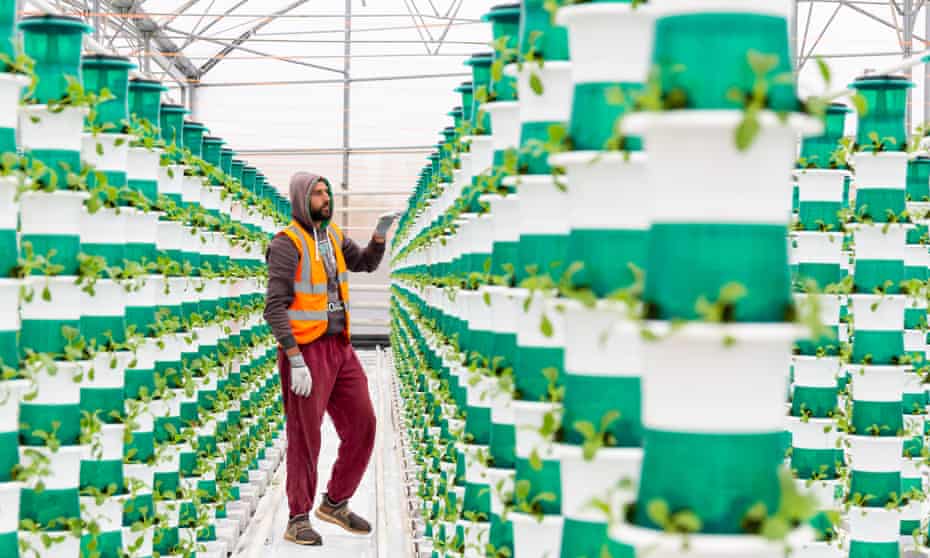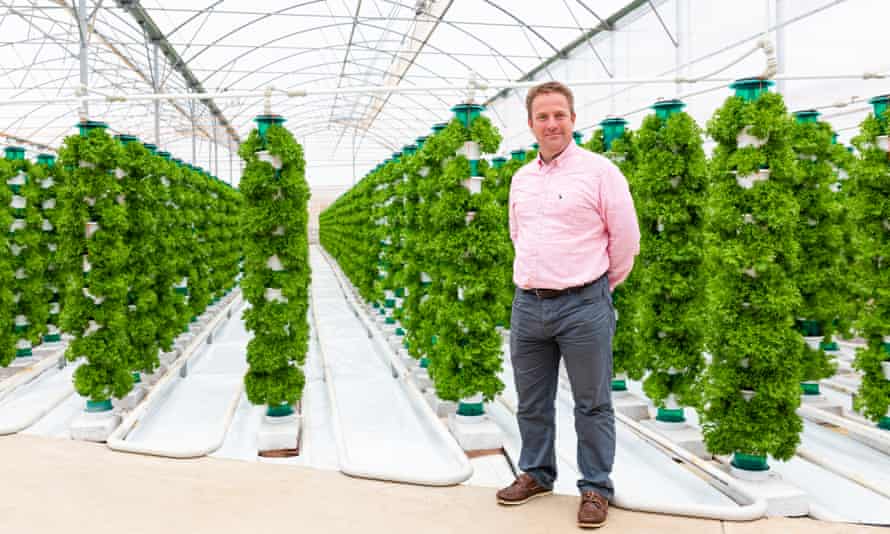‘It’s not as carbon-hungry’: UK’s largest sunlit vertical farm begins harvest
In a greenhouse in Worcestershire, Shockingly Fresh grows towers of leafy veg for supermarket shelves

The largest naturally lit vertical farm in Britain has begun harvesting and the creators plan to build 40 more.
It looks nothing like a traditional farm, with bright white towers of leafy green vegetables stacked as high as the eye can see. But Shockingly Fresh’s first giant greenhouse, in Offenham, Worcestershire, is harvesting thousands of bunches of pak choi and lettuce destined for supermarket shelves. The farm is suited to a variety of leafy greens, as well as strawberries and herbs.
The company says their model uses less water and yields many times more plants than field growing.
Nick Green, the development director of Shockingly Fresh, said: “This first farm will grow about 2m heads of leafy greens a year – around four times the yield we would expect on a patch of land this size.”
Unlike the majority of vertical farms, which use fully enclosed systems with heating and artificial LED light, Shockingly Fresh uses only natural light.

The dark winter afternoons in Britain mean that, unlike most hydroponic farms, production varies through the year, with fewer crops grown in winter.
Green said: “Production isn’t completely linear as it would be in a fully-lit vertical farm. But we do match the consumption pattern of people – people don’t eat as much lettuce in winter as they do in summer.”
Seasonal fruit such as strawberries can still be grown in the colder months, the company says, which could help reduce imports. “It is ultimately better for the environment. I can’t say it’s carbon-neutral but it isn’t as carbon-hungry as an LED vertical farm would be,” Green said.
Their next farm, planned for West Calder in Scotland, will be even bigger, and could be the largest vertical farm in the UK.
Many companies across the country are experimenting with hydroponic and other vertical farms, as land use is reevaluated. Scientists are developing ways farming could become higher-yield and use less land, pesticides and water, so more land can be left for nature.
Notable examples include Growing Underground, which produces micro greens and salad leaves below the busy streets of Clapham, and LettUs Grow in Bristol, which also produces leafy vegetables.
Some supermarkets, including Marks & Spencer, have introduced vertically grown fresh herbs in their fruit and vegetable section, ready to be picked by customers.